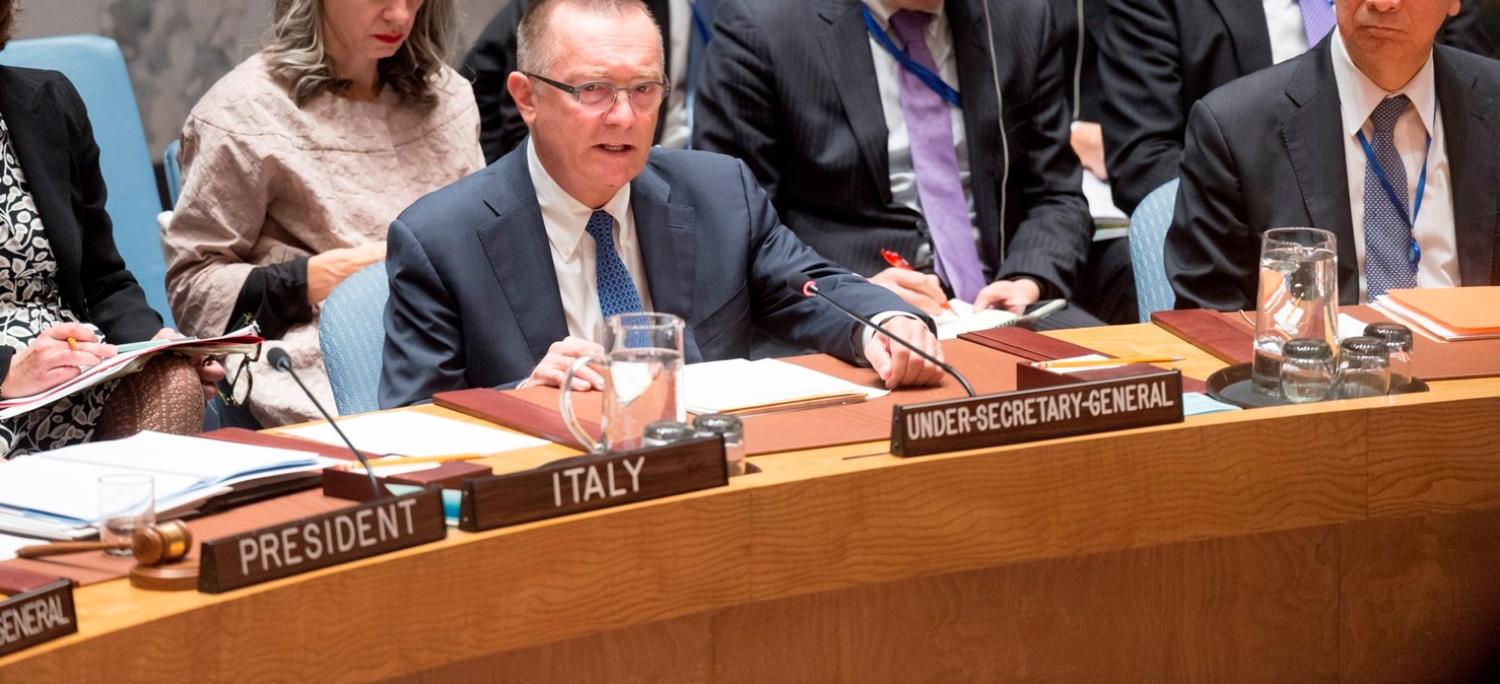Last month, the UN Under-Secretary-General for Political Affairs Jeffrey Feltman visited North Korean officials to promote a political solution to heightened tensions over Pyongyang's nuclear program.
Feltman's mission has not received the attention it should have. The visit was the first political exchange between Pyongyang senior officials and the UN Secretariat in almost eight years. It raises the possibility of the UN assuming a more active role in efforts to avoid conflict on the Korean Peninsula. The approval for the visit by the major players (the US, China, Russia, Japan and South Korea) reflects a recognition that diplomatic efforts have thus far fallen short of restraining North Korea's weapons program, and that UN engagement could ease the genuine danger of conflict.
The four-day visit took place at a particularly tense time, following North Korea's launch of an intercontinental ballistic missile on 29 November and fears its range may extend to the continental US. While Pyongyang may not currently have the capability to deliver a nuclear bomb over such a distance, the test represented significant progress in their ambitions. Indeed, state media reported Kim Jong-un's statement that North Korea had 'finally realized the great historic cause of completing the state nuclear force'.
Relations between the US and North Korea were already at a low, as reflected by an exchange between leaders of both states during the UN General Assembly in September. US President Donald Trump stated that if the US was 'forced to defend itself or its allies' from Pyongyang's nuclear and weapons programs, it would have 'no choice but to totally destroy North Korea'. In response, North Korea's Foreign Minister told the world body that Trump would 'pay dearly for his speech' and that North Korea's missiles would inevitably strike the US mainland. This was the stark backdrop to Feltman's visit.
Feltman is a former senior US State Department official and a savvy operator not given to hyperbole. In his public read-out of the visit, he offered a personal observation that it was the most important mission he had ever undertaken in his professional career and that he had felt the sense of responsibility on his shoulders throughout his time there.
Typically the UN Secretariat has taken a back seat in UN deliberations on North Korea, which have been primarily driven instead by the Security Council. Even the Security Council's pronouncements are privately crafted by delicate negotiations between the US and China before adoption by the Council membership. The Security Council strategy, led by the US to complement its national policy, has been to pressure North Korea to abandon its nuclear activities through a series of resolutions that isolate the regime and impose sanctions. Unfortunately, there continues to be an inadequate focus on enhancing implementation of the sanctions to ensure the measures achieve the necessary bite. In any event, clearly the strategy is not working and the US and China have therefore shown a willingness to allow the UN Secretariat to insert itself into this typically exclusive space.
It remains to be seen what effect Feltman's visit will have on the crisis. Feltman depicted the visit as an opportunity to build a framework for engagement in which the UN could participate in a form of shuttle diplomacy, facilitating the reopening of 'technical channels of communication' to 'reduce risks, signal intentions, prevent misunderstandings and manage any crisis'; and offering a means for North Korea to signal preparedness to consider 'talks about talks'.
Feltman was understandably cautious in characterising his reception by the North Korean interlocutors. Other than confirming agreement on the importance of preventing war, Feltman declined to report the North Korean's response to his diplomatic proposal on the basis that, like any delegation, the officials would need to discuss their position internally with their leadership. Feltman did note, however, that the door was now ajar, and expressed hope that the door to a negotiated solution would become wider still.
After the visit, Secretary-General António Guterres made a pitch for the UN Secretariat's continued engagement in the crisis in his remarks at the Security Council ministerial meeting on North Korea in December:
I believe the United Nations Secretariat adds strategic value in three key areas. First, impartiality. Second, the voice and norms, values and principles for peaceful and diplomatic solutions, in line with international law. Third, offering channels of communication with all parties.
These are indeed strengths to warrant the Secretariat's involvement.
David Ignatius from the Washington Post reported that in their discussions with Feltman, the North Koreans had been reluctant to commit to entering talks that might ease the confrontation over the nuclear program:
They agreed, for example, that a restoration of military-to-military contacts would at some point be necessary, but not yet. They also agreed that denuclearization is the ultimate long-term goal for Korea, but not yet. And they expressed interest in a follow-up meeting, though nothing specific is planned.
This approach would be consistent with an effort in brinkmanship and in strengthening their negotiating hand. However, the stakes in adopting such a strategy are high. Last month, US National Security Adviser HR McMaster warned that UN sanctions against North Korea 'might be our last, best chance to avoid military conflict'. At the weekend, CIA chief Mike Pompeo declared the Trump administration 'is prepared to do what it takes' and 'for the first time in an awfully long time' was serious about denuclearizing the Korean peninsula.
When bilateral and multi-party diplomatic options appear to be running out, the intervention by the UN Secretariat is welcome. All parties should be committed to exploring whether the UN Secretariat might just offer some way out.

